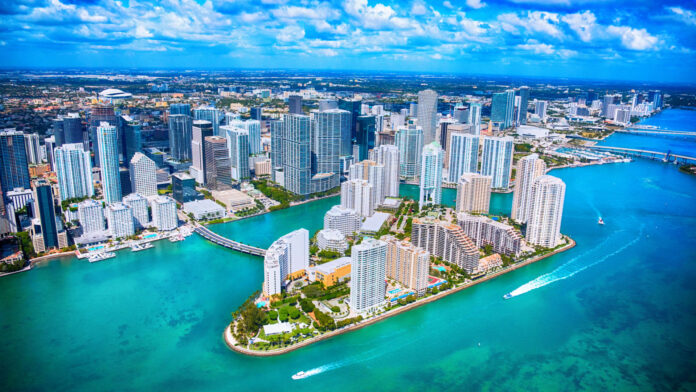In December, RealtyHop released its Housing Affordability Index.
The study examined the 100 most populated cities in the U.S. to provide an index of housing affordability and homeownership burden.
To calculate the index, the following statistics were used:
- projected median household income
- median for-sale home listing prices via RealtyHop data
- local property taxes via American Community Service census data
- mortgage expenses, assuming a 30-year mortgage, a 5.5% interest rate, and a 20% down payment.
Miami, Florida, topped the list as the least affordable housing market in the U.S. The city saw a 0.50% increase in the median asking price for a home from $595,000 to $598,000.
According to RealtyHop, a family making Florida’s average household income of $44,581 would have to spend 85.67% of their paycheck on housing costs.
The 5 least affordable housing markets in the U.S.
- Miami, Florida
- Los Angeles, California
- New York, New York
- Newark, New Jersey
- Hialeah, Florida
Los Angeles, California came in second on the list. The median purchase price for a home decreased by $1,000, but it is still the sixth month in a row that California city remains the second least affordable city.
According to RealtyHop, with an average salary of $69,695, someone can expect to spend 83.06% of their income on housing costs like mortgage payments and taxes.
New York City ranks as the third least affordable city in the U.S., with the median purchase price increasing by 1.93%. A resident with an average salary of $68,129 will have to spend 78.97% of their income on housing, which equates to $4,483.45 monthly.
Although the average purchase price has increased, NYC is still less expensive than it was this summer, where homeowners directed 84.61% of their income towards housing costs, according to RealtyHop.
Sign up now: Get smarter about your money and career with our weekly newsletter
Don’t miss
The top 10 cities that offer homebuyers the most bang for their buck—none of them are in Florida
These are the best U.S. states to raise a family if you make over $70,000 a year


